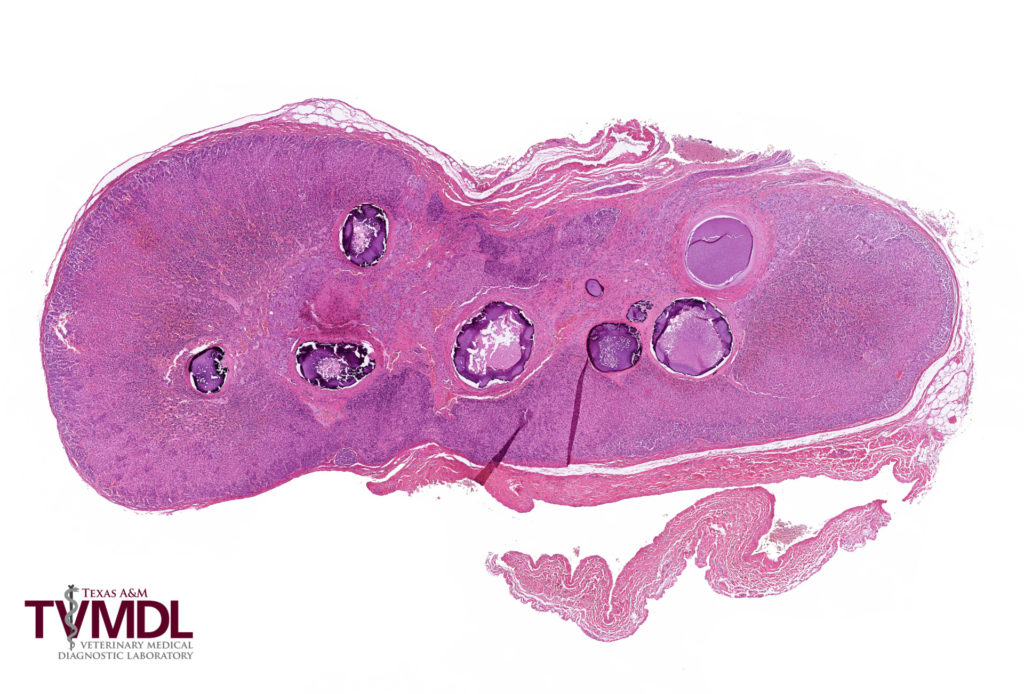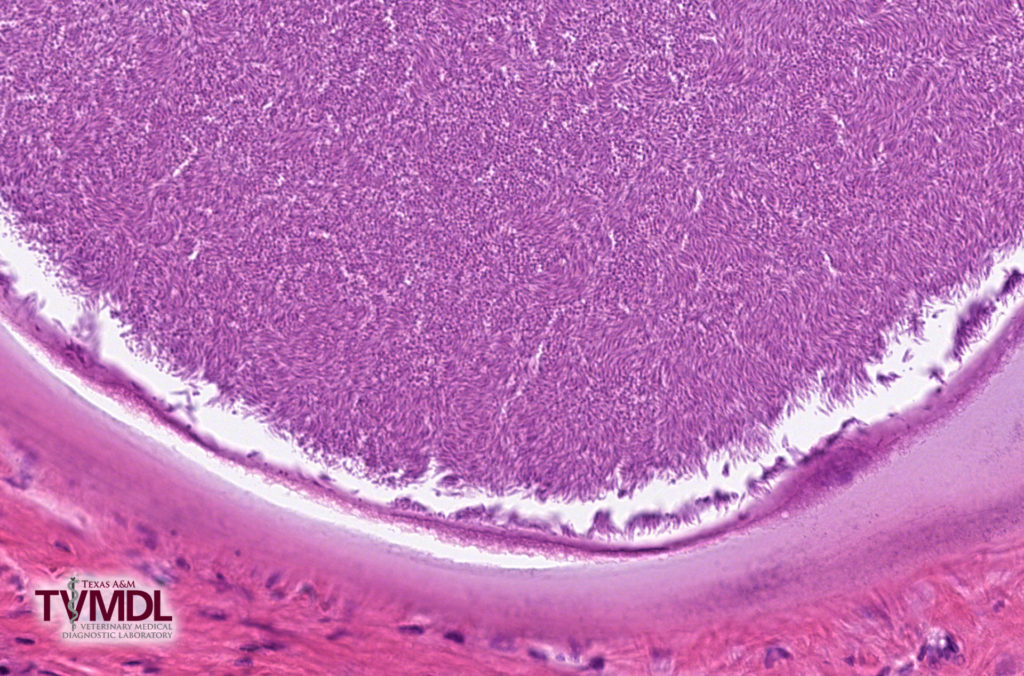Systemic Besnoitiosis in a Virginia Opossum
Erin Edwards, DVM, MS, DACVP
Besnoitia spp. are protozoal parasites that form tissue cysts in intermediate hosts. Besnoitiosis caused by B. darlinigi is well described in Virginia opossums (Didelphis virginiana), and cats serve as the definitive host. In opossums, B. darlinigi infection can typically be identified externally by the presence of cutaneous, 2-4 mm, round to ovoid, smooth, white nodules. The pinnae and mucous membranes are commonly affected sites. Infection is often incidental and nonpathogenic with no harmful effects on the opossum. In severe cases, though, infection can become disseminated with tissue cysts being found throughout the body. These cysts are visible both macroscopically and microscopically, and systemic infection can lead to debilitation and death. In disseminated cases, affected animals are suspected to have underlying immunosuppression such as from stress, endoparasitism, or other unknown causes.
Systemic besnoitiosis was diagnosed in a Virginia opossum via histopathology at TVMDL. The animal was from the state of Maryland and was estimated to be a juvenile. Formalin-fixed tissues were submitted to TVMDL, and histopathologic examination identified characteristic tissue cysts in multiple organs including the adrenal glands (Figure 1), pinnae, haired skin, a digit, the heart, liver, kidney, small intestine, and brain. These tissue cysts were round, had a thick wall, and were filled with abundant closely packed, elongated, curved bradyzoites (Figure 2). Many were degenerate and partially mineralized, and they were occasionally surrounded by granulomatous inflammation. The systemic infection in this case was considered pathologically significant.

